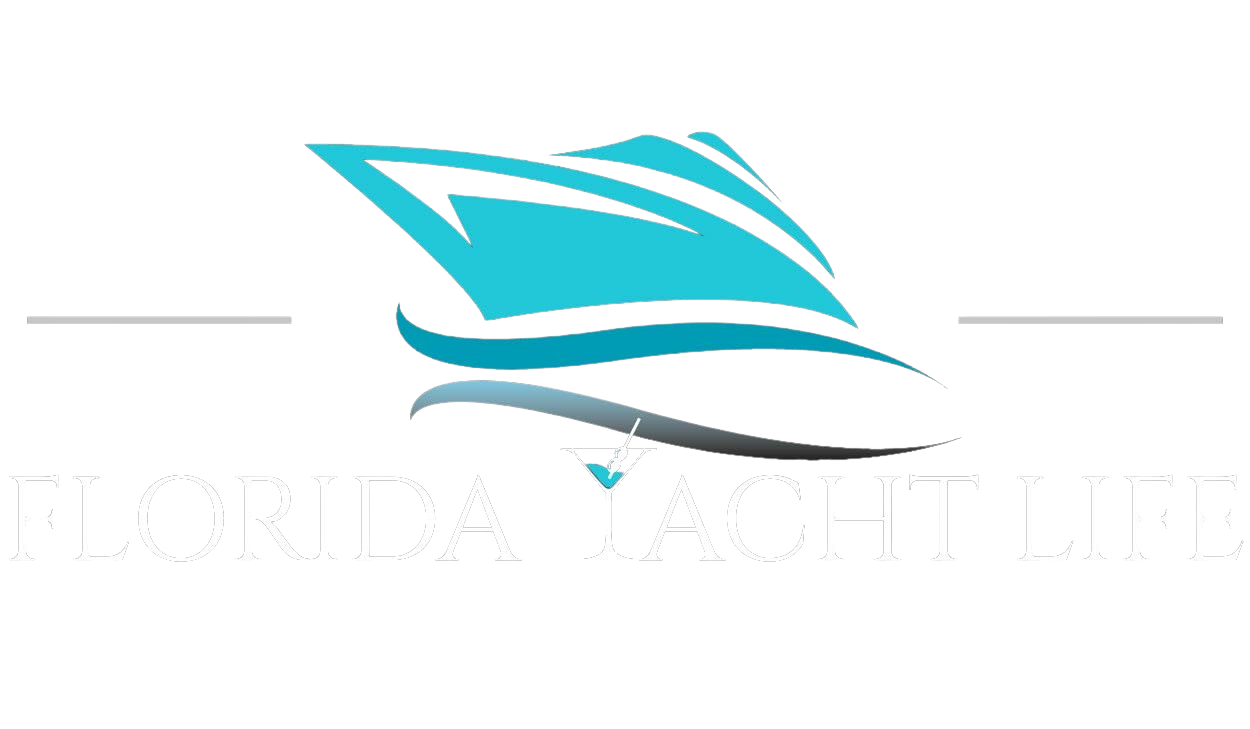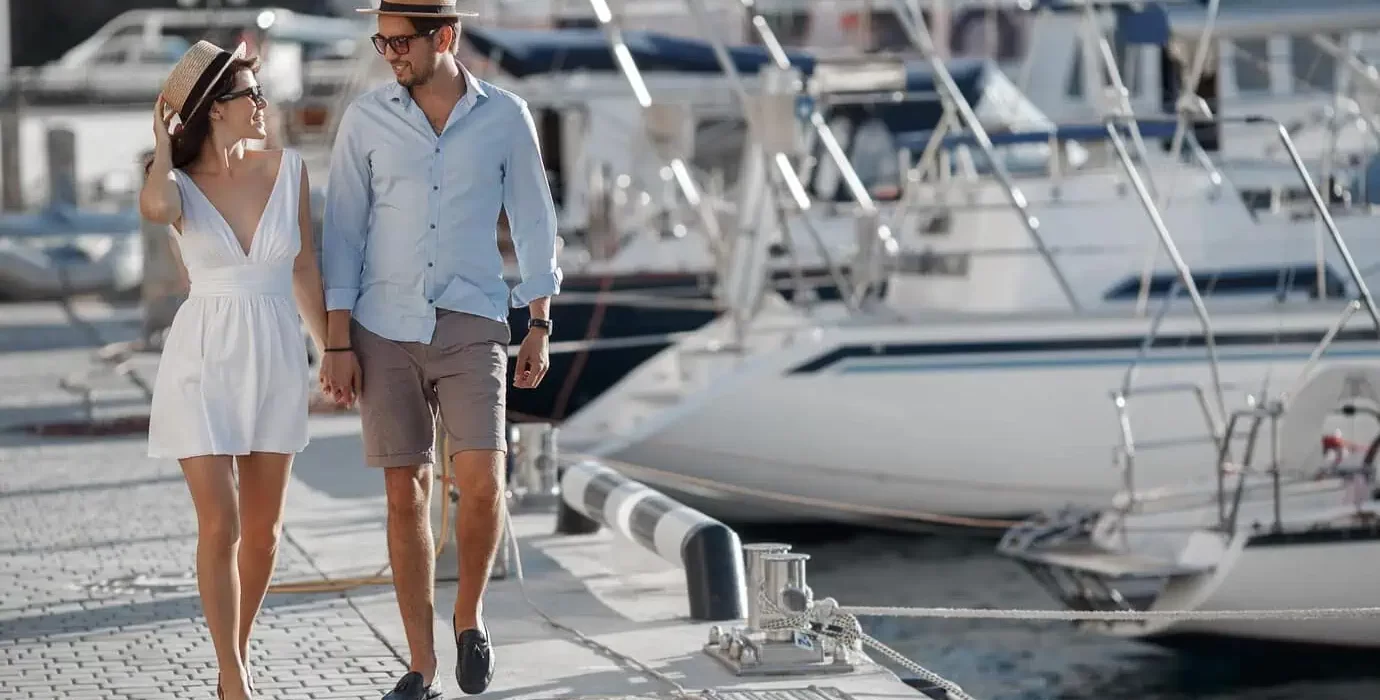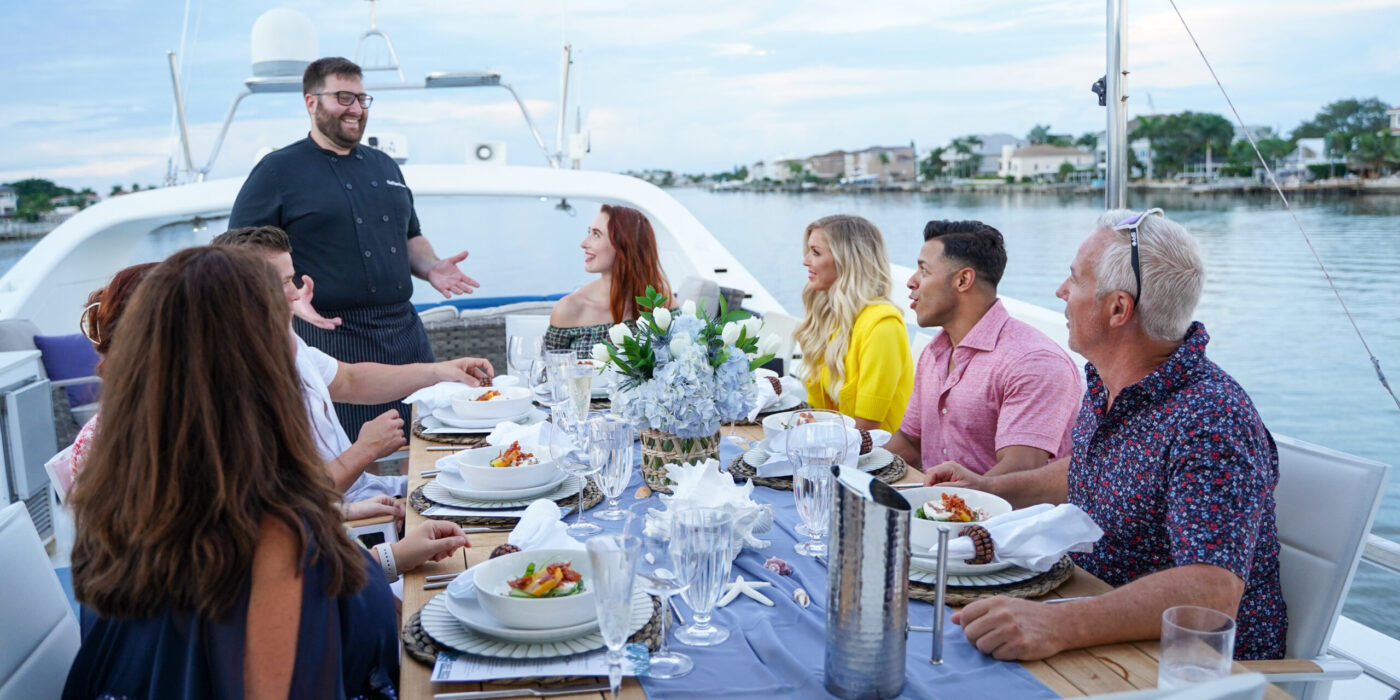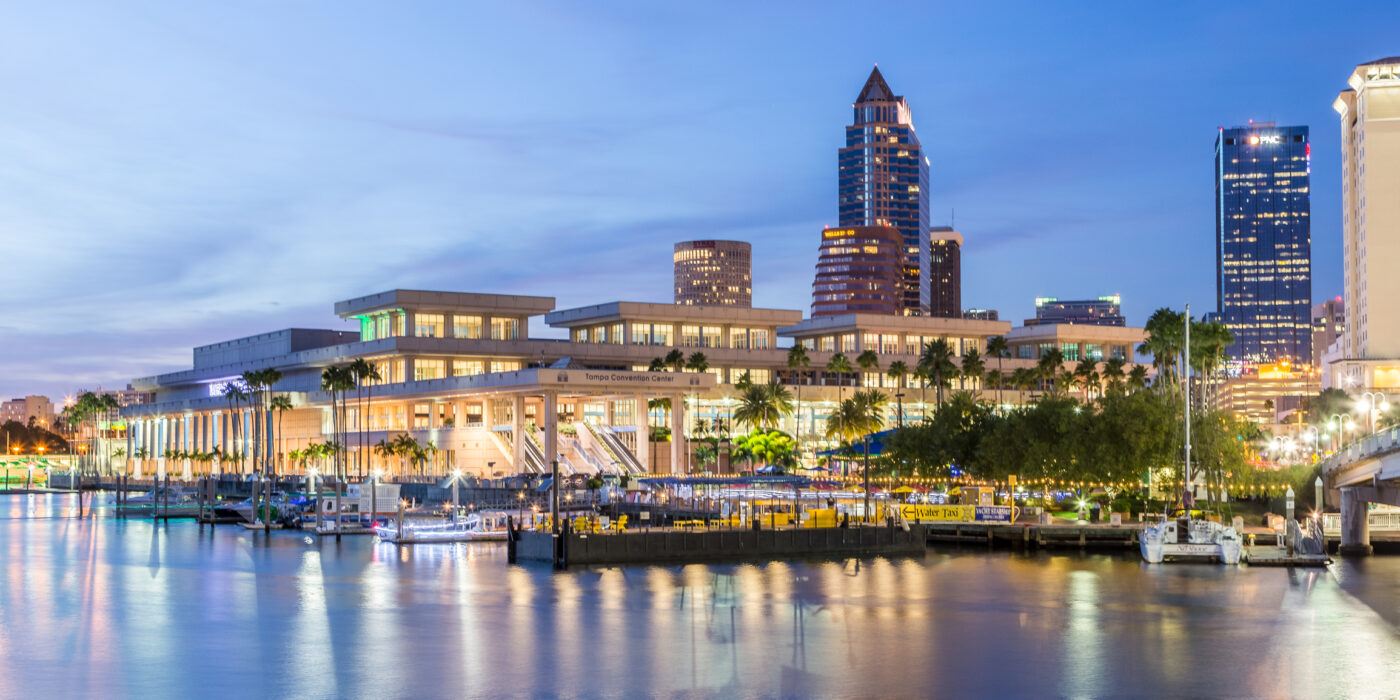15 Yacht Charter Rules You Should Know
Embarking on a luxurious yacht charter can be the experience of a lifetime, offering an unparalleled opportunity to explore exotic destinations, relax in the utmost elegance, and indulge in all the luxuries that a private yacht has to offer. With such a unique and memorable experience, it’s essential to familiarize yourself with the essential yacht charter rules to ensure smooth sailing and make the most out of your luxurious getaway.
Certain standards have been established throughout the yachting industry to ensure the safety and well-being of guests, crew, and the yacht itself. By adhering to these guidelines, you can confidently enjoy your time aboard, provide an ideal working environment for the crew, and abide by international maritime laws.
In this article, we will outline 15 essential yacht charter rules you should know, from respecting the crew’s authority to understanding proper etiquette when in port. By following these recommendations, you’ll be able to fully immerse yourself in the captivating world of luxury yacht charters and create unforgettable memories with your loved ones. When it comes to Tampa Bay, Florida Yacht Life is dedicated to providing exceptional experiences that adhere to these essential rules, ensuring that every charter is both luxurious and memorable.
Understanding Charter Types
When planning a yacht charter, it is crucial to be familiar with the different types of charters available. This section will provide a brief overview of two primary yacht charter types: Bareboat Charters and Skippered Charters.
Bareboat Charters
A bareboat charter refers to a yacht charter where the client rents the boat without a hired crew. The client assumes full responsibility for the vessel, including navigation, maintenance, and overall safety.
This charter type is suitable for experienced sailors, as proficiency in yacht handling and navigation are prerequisites. The hirer must present evidence of sailing qualifications and experience, typically in the form of a valid sailing license.
Advantages of Bareboat Charters:
- Flexibility: Clients have complete control over their itinerary, sail routes, and duration of stops.
- Price: Bareboat charters are generally more cost-effective, as clients are not hiring a professional crew.
- Privacy: Clients enjoy increased privacy without the presence of hired crew members.
Skippered Charters
In a skippered charter, the hirer rents a yacht with a professional skipper on board. This type of charter offers additional guidance and yacht handling expertise to clients who may have limited experience or simply prefer a more relaxed sailing vacation. When it comes to yacht charter Tampa, this option provides a wonderful opportunity for individuals to explore the stunning waters of the Tampa Bay area with the assurance of a skilled skipper at the helm.
The hired skipper assumes the responsibility of vessel management, allowing clients to focus on enjoying their travel experience.
Advantages of Skippered Charters:
- Expert Assistance: A professional skipper has extensive knowledge of the local area, including points of interest, hidden gems, and the safest routes.
- Safety: A skippered charter provides the added security of a professional, certified captain who is responsible for all aspects of the yacht’s safety and navigation.
- Less Stress: Clients can benefit from a more relaxed sailing experience, placing their trust in an experienced skipper.
To summarize, choosing the appropriate yacht charter type largely depends on the client’s experience, sailing qualifications, and desired level of control over the yacht and itinerary. Both bareboat and skippered charters offer unique advantages, and understanding these options can help clients make an informed decision for their perfect yachting experience.
Safety and Regulations
When chartering a yacht, it is essential to prioritize safety and adhere to the regulations in place. This section will explore the importance of safety equipment and navigational rules while on a yacht charter.
Safety Equipment
Yacht charter operators must ensure that their vessels are equipped with all essential safety equipment. The following list highlights some of the items that should be on board:
- Lifejackets: Available for each passenger, adjusted to fit based on their size and weight.
- Life Rafts: In case of an emergency, life rafts are imperative. They should be inspected and maintained regularly.
- Fire Extinguishers: Different types of fire extinguishers should be readily available on the yacht, targeting various fire categories (A, B, C, etc.).
- First Aid Kit: A well-stocked first aid kit should be aboard, catering to common injuries and ailments.
- Emergency Position Indicating Radio Beacon (EPIRB): Activated in distress situations, the EPIRB sends a signal to rescue services with information about the vessel’s location.
Additionally, it is crucial for crew members and passengers to be familiar with the location and proper use of the safety equipment.
Navigational Rules
Understanding the navigational regulations, also referred to as the “rules of the road,” is necessary for navigating a yacht.These regulations support the preservation of maritime safety by preventing collisions. Key navigational rules that yacht charterers should be aware of are:
- Right of Way: Understand which vessel has the right of way in different situations.
- Speed Restrictions: Abide by speed limits, especially in areas near other vessels, ports, or marine life.
- International Regulations for Preventing Collisions at Sea (COLREGs): These international maritime regulations, enacted by the International Maritime Organization (IMO), should be followed by all yachts. Familiarize yourself with its content, including standard signaling, lights, and shapes.
- Charts and Aids: Always use updated charts and regularly monitor navigational aids (buoys, beacons, etc.) to avoid hazards and follow designated routes.
- Communication: Efficient communication between the crew and other vessels is integral to ensuring smooth and safe navigation.
By being mindful of these safety and regulatory guidelines, yacht charterers can ensure a safe and enjoyable experience.
Financial Considerations
When planning a yacht charter, it is essential to understand the financial aspects involved in the process. In this section, we will discuss the main financial considerations, including charter costs and insurance and liability.
Charter Costs
Charter costs can vary significantly depending on factors such as the yacht’s size, age, destination, and boarding facilities. It is crucial to understand the primary components of charter costs:
- Base price: This is the upfront cost of renting the yacht, usually quoted on a weekly basis. It typically covers yacht and crew expenses but does not include extras such as food, fuel, and docking fees.
- APA (Advance Provisioning Allowance): This is an additional fee, usually a percentage of the base price (approximately 20-30%), which covers the operational costs of the charter, such as fuel, food, and port fees. At the end of the trip, any remaining APA balance is refunded to the client.
- Gratuities: It is customary to tip the yacht crew (usually around 10-20% of the base price) upon completion of the charter.
By researching and comparing different yacht options, you can find the best charter option within your budget.
Insurance and Liability
There are several hazards associated with yacht charters, therefore you need to be sure you have enough financial protection.There are two primary categories of insurance to think about:
- Yacht insurance: The yacht owner should have insurance that covers the vessel, including hull and machinery coverage, as well as protection and indemnity (P&I) coverage. Before booking a charter, ask for proof of insurance from the yacht owner to ensure it is up-to-date and comprehensive.
- Charterer’s liability insurance: As a charterer, you may be held liable for any damages or injuries that occur during the trip. It is highly recommended to have liability insurance to protect yourself from any unexpected expenses. Some popular options include:
- Trip Cancellation Insurance: Covers cancellation costs due to unforeseen circumstances such as illness, injury, or unforeseen events.
- Medical and Accident Coverage: Covers medical expenses and emergency evacuation in case of an accident during the trip.
- Personal Effects Insurance: Protects against the loss or damage of your personal belongings during the charter.
By understanding and addressing the financial aspects of yacht chartering, you can help ensure a smooth and worry-free trip.
Respect for Environment
Yacht charters offer an incredible experience to explore the beauty of oceans and coastlines. This section will discuss the importance of respecting the environment whilst enjoying a yacht charter.
Environmental Protection
When chartering a yacht, it is crucial to be aware of the marine ecosystem. The ocean houses diverse flora and fauna, which can be fragile and require protection.
- Avoid anchoring in sensitive areas such as coral reefs and seagrass beds. Instead, use mooring buoys or designated anchorages.
- Maintain a safe distance from marine life such as dolphins, whales, and sea turtles. Federal regulations might require specific distances to be observed.
- Be mindful of the use of sunscreen, as certain chemicals can harm coral reefs. Opt for reef-safe sunscreens that are biodegradable and eco-friendly.
- When participating in water activities like snorkeling or diving, avoid touching marine life, as it can negatively impact their natural behavior.
Waste Management
Proper waste management in your yacht charter is essential to minimizing the environmental impact of your trip.
Follow these tips to minimize waste and ensure sustainable yacht charter practices:
- Minimize single-use plastic: Bring reusable water bottles, bags, and containers, and avoid using plastic cutlery.
- Recycling: Separate and store recyclable materials such as glass, plastic, paper, and aluminum cans. Dispose of them in designated recycling facilities once ashore.
- Biodegradable products: Use eco-friendly and biodegradable cleaning products and toiletries to minimize pollution.
- Energy conservation: Turn off lights, appliances, and air conditioning when not in use. Make use of natural daylight and airflow.
- Proper waste disposal: Dispose of trash and waste in appropriate onshore facilities. Never throw trash or waste overboard.
By following these rules and guidelines, you can ensure a memorable and responsible yacht charter experience, while preserving the beauty and health of the marine environment for future generations to enjoy.
Crew Etiquette and Tipping
When chartering a yacht, it’s essential to treat the crew with respect and adhere to proper yacht etiquette. The crew works tirelessly to ensure your trip is enjoyable, so be kind, patient, and considerate. Here are a few important guidelines to follow regarding crew etiquette and tipping.
- Politeness: Always address the crew using their titles (Captain, First Mate, etc.) or their first names. Maintain a polite and respectful demeanor during your interactions.
- Following instructions: The crew is responsible for your safety on board. It’s important to follow their instructions, especially during safety drills and when maneuvering the yacht.
- Crew quarters: Avoid going into crew quarters unless invited. The crew needs their privacy, and it’s best to respect their space.
- Meal requests: Inform the chef ahead of time about any dietary restrictions or preferences you may have. It’s also essential to communicate any changes to your meal plans.
- Gratuities: Tipping is a customary way to show appreciation for the crew’s services. The general practice is to tip around 10% to 15% of the charter fee, depending on the level of service provided. Here’s a breakdown of how to distribute the tips:
Crew Member Percentage of Total Tip Captain 20% – 25% Chef 15% – 20% Engineer/Mate 10% – 15% Other crew members 5% – 10%
It’s best to give the entire tip to the captain, who will distribute it among the crew members according to their roles and responsibilities.
In conclusion, maintaining proper crew etiquette and tipping helps create a harmonious and enjoyable yacht charter experience. You can thank the yacht’s crew for their hard work and dedication by being polite, paying according to the rules, and following their directions. When experiencing Florida Yacht Life, these considerations contribute to a memorable and seamless luxury charter experience.




